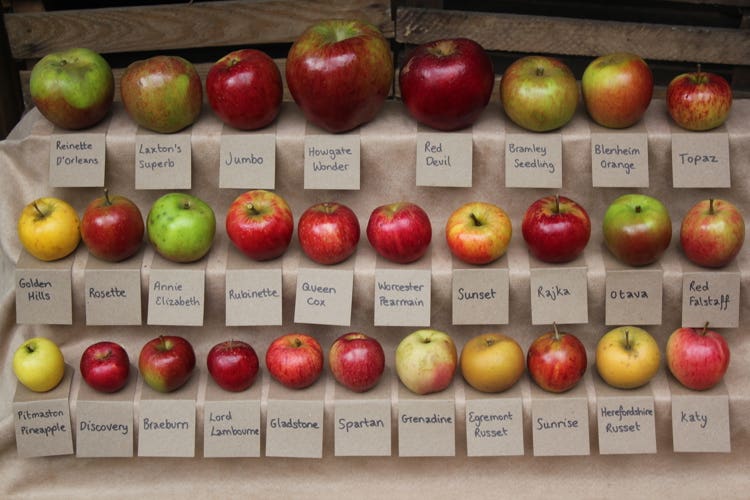Eating less can extend lifespan, study finds
Cutting calories, not intermittent fasting, extends lifespan, but genetics play a bigger role than diet, according to new research.

A new study reveals that eating fewer calories extends lifespan more than intermittent fasting, but genetics may be the biggest factor in longevity. (CREDIT: CC BY-SA 3.0)
For nearly a century, research has shown a clear link between eating less and living longer. Numerous laboratory studies have demonstrated that animals on restrictive diets tend to outlive their counterparts who eat freely. However, the mechanisms behind this phenomenon have been elusive.
Scientists have been working to understand why these diets extend lifespan and how they might apply to humans. A new study published in Nature aims to shed light on these questions, offering insights that could reshape how we think about diet and aging.
Researchers at The Jackson Laboratory (JAX) and their collaborators designed an experiment involving nearly 1,000 mice to study the effects of various diets. The study was unique in that each mouse was genetically distinct, allowing the team to mirror the genetic diversity of humans. This setup makes the results particularly relevant to understanding how these findings might apply to people.
The study’s most striking finding was that a very low-calorie diet extended lifespan more effectively than intermittent fasting. While periodic fasting has gained popularity as a health trend, the research found that simply eating fewer calories daily led to longer lives for the mice, regardless of their body fat or glucose levels—two markers typically associated with aging and metabolic health.
Intriguingly, the mice that lived the longest were not the ones that lost the most weight. In fact, mice that shed significant weight on calorie-restricted diets often had lower energy, weakened immune systems, and compromised reproductive health, which shortened their lives.
“Our study really points to the importance of resilience,” said Gary Churchill, the study's lead researcher and a professor at JAX. “The most robust animals keep their weight on even in the face of stress and caloric restriction, and they are the ones that live the longest. It also suggests that a more moderate level of calorie restriction might be the way to balance long-term health and lifespan.”
Related Stories
The research team assigned female mice to one of five diets: a group that could eat as much as they wanted at any time, two groups that received either 60% or 80% of their normal calorie intake, and two groups that fasted for either one or two days each week but could eat freely on the other days. The mice were monitored throughout their lives, with regular blood tests and health evaluations.
The results were telling. Mice on unrestricted diets lived for an average of 25 months, while those on intermittent fasting diets lived for 28 months. The mice eating 80% of their baseline calories lived for 30 months, and those on a 60% calorie intake lived the longest, averaging 34 months. However, even within these groups, there was a wide range of lifespans. Some mice on the lowest-calorie diets lived for just a few months, while others survived as long as four and a half years.
When the researchers dug deeper into the data, they found that genetics played a much larger role in lifespan than the type of diet. Mice that were genetically more resilient—those that maintained their body weight, body fat percentage, and immune health during times of stress—lived the longest. This finding highlights the complex relationship between diet, genetics, and aging, suggesting that a one-size-fits-all approach to longevity might not be realistic.
“If you want to live a long time, there are things you can control within your lifetime such as diet, but really what you want is a very old grandmother,” Churchill remarked, emphasizing the role of genetics in longevity.
The study also challenged long-held beliefs about why certain diets help extend life. Traditional thinking often points to factors like weight loss, body fat reduction, and lower blood glucose levels as signs of good health and longevity.
However, the study found that these markers didn’t explain why eating less led to longer lives. Instead, traits related to immune system health and red blood cell function were more closely linked to lifespan. This could mean that human studies on aging—many of which focus on metabolic markers—might be missing more critical factors that contribute to healthy aging.
“While caloric restriction is generally good for lifespan, our data show that losing weight on caloric restriction is actually bad for lifespan,” Churchill explained. “So when we look at human trials of longevity drugs and see that people are losing weight and have better metabolic profiles, it turns out that might not be a good marker of their future lifespan at all.”
The implications of this research are profound. It suggests that simply cutting calories or following popular intermittent fasting regimens may not be the key to a longer life. Instead, a moderate approach to calorie reduction, combined with factors like genetic resilience, may be the most effective way to extend both health and lifespan.
For humans, this could mean that our individual genetic makeup plays a significant role in how well certain diets work, underscoring the need for personalized approaches to aging and diet.
Note: Materials provided above by The Brighter Side of News. Content may be edited for style and length.
Like these kind of feel good stories? Get The Brighter Side of News' newsletter.
Rebecca Shavit
Science & Technology Journalist | Innovation Storyteller
Based in Los Angeles, Rebecca Shavit is a dedicated science and technology journalist who writes for The Brighter Side of News, an online publication committed to highlighting positive and transformative stories from around the world. With a passion for uncovering groundbreaking discoveries and innovations, she brings to light the scientific advancements shaping a better future. Her reporting spans a wide range of topics, from cutting-edge medical breakthroughs and artificial intelligence to green technology and space exploration. With a keen ability to translate complex concepts into engaging and accessible stories, she makes science and innovation relatable to a broad audience.



